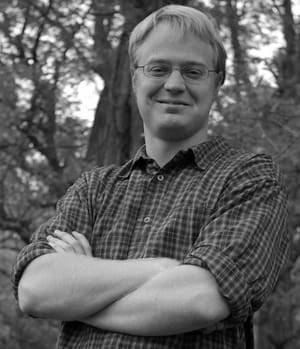Welcome to the Center for Public Justice in Washington, D.C. Enter the world of a small think tank that provides civic education on a Christian view of justice and public life. I mention the size of the organization not as a slight. If anything, the story of the Center could be compared to that of David facing Goliath, or Isaiah’s prophecy fulfilled by John the Baptist, of a voice crying out in the wilderness.
Given that the Center holds itself to be forthrightly Christian in its work and public life, perhaps a few biblical allusions are not out of order here. But Christian how? Bible quotations given by advocates of any number of political causes are a dime a dozen in the U.S. of A. Indeed, use of the Bible has a polarizing effect on the American public. Under which interpretation and by whose authority does a particular Bible verse support a particular political claim? And who says the Bible has any kind of authority in the sphere of government and politics? Consider the disdain with which many speak of Bible-quoting political figures like Jerry Falwell (on the one hand) and Jesse Jackson (on the other hand). Or consider the controversy surrounding the participation of President George W. Bush in the recent convocation of Calvin College, a religious liberal arts school in Grand Rapids, Michigan.
James Skillen, former Executive Director (1981-2000) and current President (2000- ) of the Center, is an approachable and articulate proponent of the Center’s vision. The Christian view on justice and public life stands against the limited notion of government as being concerned only with the protection of individual rights and private property—the classical liberal view. Nor does the Center champion the sort of socialism which would have the government, in addition to being the dispenser of justice, take on the task of nursemaid. Skillen talks about a Christian principled pluralism that rejects both the individualist and collectivist alternatives.
Skillen calls the Center the vanguard of a new kind of citizenry. Woven into the fabric of the Center’s identity is a conviction that the political order of America must be rethought all the way down to its founding basics. The Center exists, in large part, to testify against an individualistic liberal political order bent to the purposes of self-serving special interests groups.
Skillen is clear that the Center does not exist to serve it own ends. Other Christian organizations to which the Center might be compared lobby the government on some specific issue like abortion or homosexuality. By contrast the Center demonstrates an ambition on the scale of Abraham Kuyper’s architectonic critique of the social order, as articulated in his famous speech to the First Christian Social Congress in the Netherlands in 1891—which Skillen edited and introduced in a new English translation published as The Problem of Poverty (Baker, 1991). Christians, maintains Skillen, should be concerned with the preservation of a democratic order which has a place for everyone at the table. I don’t think many North Americans will disagree with that concern. But Skillen further insists that by their very nature special interest groups, which richly populate the American scene, are oriented away from such an order. These groups do not represent solutions, for they constitute part of America’s problem: self-interest and special interest are not so different; and neither encourages a public inclusivity.
How does one translate visions of a comprehensively renovated political order into policies that can be implemented in the present order? A quick history of the Center for Public Justice will give us a sense of how one Christian institution has come to grips with the realities of American political life.
The organizational precursor to the Center, the Association for Public Justice, started up in 1977. For nearly a decade there had been talk among American neocalvinists of the need for an organization comparable to the Christian Democratic parties of. A few questions that revolved around the nature and purpose of such an organization demanded answers. There is a natural tendency among Kuyperian Christians to think in terms of “the whole of human life.” It follows from their understanding of the Christian gospel (the central message of the faith) as having to do with the redemption of “the whole of human life.” As a result the Association for Public Justice grew out of a loosely organized, engaged-on-every-front movement. Its early history provides a good illustration of the difficulties of implementing a grand vision such as that of neocalvinism. How does one engage everything, all at once? The point is: you can’t.
Skillen speaks of the importance of recognizing the need to differentiate, or specialize. The leadership of the Association for Public Justice decided that the best thing they could do was build a politically oriented organization. European practice had been to form actual political parties that would support candidates who would stand for office, such as Kuyper’s own Anti-Revolutionary Party in the Netherlands. However, a move to repeat this in the American context seemed imprudent. In Europe Christian Democratic parties had a ready-made constituency and an accommodating electoral system. But in two-party America, there was no such constituency, and no such system. (Here we find one reason why Skillen considers the Center the vanguard of a new citizenry—it serves to develop a new constituency.)
So the Association for Public Justice was founded to be an umbrella organization bringing together a number of local chapters. Skillen took part in fostering the development of local chapters and found himself almost immediately saddled with new questions. What do you do at local chapter meetings? There is, as I have already mentioned, a very strong bias in the American political environment towards the formation of special interest groups. So some of the chapters did just this: they organized around a specific issue. Since it proved very difficult to maintain a local chapter’s strength simply on a single issue, these parts of the new constituency proved to have a short life span. Other chapters formed around a worldview educational focus; and these chapters survived the longest.
By 1989, the Association’s leadership concluded that it was not making the kind of difference it had hoped it might. The following year the Association established the Center for Public Justice, which was given a new mandate. In my interview with Skillen he rhetorically asked, “How do we do good work with what God has given us?” The Center, remember, is a small organization, but it has a big heart and a world-changing vision for the transformation of a self-serving American political order. “The Center,” explains Skillen, “is doing what it can—articulating words on paper and in speeches—with an awareness that there is a huge vacuum in American life that needs to be filled. People are not mobilized around a multi-dimensional platform that seeks to involve people as citizens in public life.”
Every so often a David slays a Goliath; and every so often a tiny Christian think thank puts on a conference in Atlanta opened by the former President Jimmy Carter and closed by Archbishop Desmond Tutu, which is attended by foreign dignitaries from around the world. In conjunction with the Law and Religion programme at Emory University’s School of Law, and sponsored by the Pew Charitable Trusts, the Center hosted a discussion on Christianity and democracy in our globalizing world in 1990, which gave a significant boost to its public reputation. From this encounter, Emory’s John Witte edited a volume titled Christianity and Democracy in Global Context (Westview, 1993).
The Center expends much of its energy on engaging Christian leaders and bringing them in contact with the Center’s view on politics and public justice. Skillen mentions names like that of David Neff, editor of Christianity Today magazine, and Ron Sider, professor and author of the well-known book Rich Christians in an Age of Hunger (W Publishing Group, 1997). The idea is educating people and establishing networks of like-minded people. This type of cultural engagement does not often make the front pages of newspapers. But I get a strong sense that this type of work, most likely called thankless by some, is not a problem for Skillen.
The Boston Review recently published an article by Lew Daly, a Research Fellow of the Democracy Collaborative, titled “Compassion Capital” (see: http://www.bostonreview.net/BR30.2/daly.html). In the article, Daly searches for the philosophic foundations of the current President Bush’s faith-based initiative, a program to help churches get back into the social services sector. The Center figures prominently in the analysis, no doubt because Stanley Carlson-Thies, the Center’s director of social policy studies, was “one of the key architects of Bush’s faith-based initiative”—as Daly identifies him. And this is certainly not far from the truth; Carlson-Thies authored the first draft of a policy meant to advance faith-based initiatives. Unfortunately, the only thing Daly really accomplishes in terms of positioning the Center along the spectrum of American politics is to associate them quite closely with the Bush government. This is a misunderstanding of the mission and character of the Center.
The Center’s view of Christian cultural engagement starts where Psalm 24 does: “The earth is the LORD’s, and the fulness thereof; the world, and they that dwell therein.” To affirm this basic tenet about the world is to stand in opposition to the liberal conception of a political order made up of self-serving individuals ganging up in interest groups; for, very simply, the earth is the Lord’s, not ours.
Skillen’s vision gives what the liberal one cannot: a foundation for enduring cooperative efforts and traction to concern for others. Right from the beginning, Skillen says the plan was to engage the organization politically at the national level. The decision to base in Center in Washington. D.C. was an intentional move to build networks with already-established institutions like the Pew Forum in the national capital. Broadly engaged in educating the public about a new conception of citizenship while pursuing focused projects like Carlson-Thies’ work on social welfare, the Center positions to itself to make the strategic contributions to government policy and public life that are much needed.
The current situation of the Center for Public Justice seems to be the result of three strategic decisions about building an institution. First, the decision to move from a membership-based organization of networked chapters to a supporter-based organization in the form of a think tank. Second, the decision to operate in and around a cultural centre of power, Washington D.C., and to network closely with other institutions in projects that helped build the Center’s profile—such as working with Emory University and the Pew Charitable Trusts to present a conference, or working with established institutions of Christian higher education to present annual lectures. Third, the decision to follow a two-pronged educational approach, on the one hand continuing to do general educational work in political philosophy, and on the other hand to take on a series of large multi-year projects with a narrower policy-oriented focus—such as the Center’s project on welfare reform.
Each of these decisions are contentious, and as an apprentice historian I am leery of making a quick judgment on the prudence of any of them. But it will be interesting to continue to watch the Center as it pursues its institutional vocation in the years to come, and the evaluate the consequences of these strategic decisions. One thing we can say, I think, and that is that the Center for Public Justice is an encouraging example of the value of building an institution in our efforts to address the culture in which we live, and of the benefits a younger generation gain when an older generation is faithful in establishing such nodes of cultural response in a challenging and complex world.





